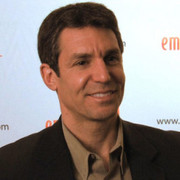 B-D-S/PhotoSpin
B-D-S/PhotoSpin
An earlier version of this column first appeared on the Huffington Post.
I have been a loyal patron of the Karma Hair Salon in New Haven, Conn. for at least the past 15 years. Whenever my hair looks good, it is thanks to Karma and owner Cheryl McMahon's expert attention to my unruly head (the thickness of my hair -- a good problem, I know! -- could give a yak envy; and I have more cowlicks than several small countries). If ever my hair doesn't look too good, it's because I've gone too long between appointments.
As it turns out, there may have been an element of, well, karma, in my patronage of this particular salon.
At my most recent visit, the moment I came through the door, Cheryl -- who had been awaiting my scheduled arrival -- intercepted me. She had someone in the back, curled up with abdominal pain, stretched across the top of a washer and dryer. This young woman was hoping her pain would just resolve, and was disinclined to go to the emergency room -- out of concern for both the inconvenience and cost. But Cheryl was worried this might be appendicitis and asked me to intervene.
I got a brief history, indicating the onset of dull abdominal pain the night prior, with progression to acute pain in the morning, becoming severe only after she arrived at the salon. There had been no nausea or vomiting, but there had been a distinct loss of appetite since early morning. I was there for a haircut, so of course had no tools of the medical trade with me. In lieu of a stethoscope, I had to put my ear directly on the patient's belly -- and discerned diminished bowel sounds. I had no thermometer, but skin temperature felt about normal.
I'll spare you further details. My exam and brief history pretty reliably ruled out a heart condition, a lung condition, a gall bladder or liver problem, pancreatitis, or gastroenteritis. Abdominal tenderness was concentrated in what is known in medicine as McBurney's point, roughly midway between the umbilicus (belly button) and the right anterior superior iliac spine (pelvic bone). This is a classic finding in appendicitis, which is what I, too, thought she had.
As a doctor, I had a bit more clout on this issue than Cheryl. I convinced the young woman that whatever the inconveniences of an ER visit, they paled in comparison to dying from a ruptured appendix. A friend was at the salon within minutes to take her to the hospital, where later that day, the diagnosis was confirmed, and she underwent an appendectomy. I understand that at surgery, her appendix was indeed "hot," but unruptured -- and she is now at home recovering well.
So, the timely trip to the hospital likely saved this woman's life. Frankly, I give credit to Cheryl, who had latched on to the right diagnosis before ever I arrived on the scene. But it is still true that my medical training turned an anxious concern into a credible diagnosis, and that credibility convinced this young woman to get to the hospital when she was otherwise disinclined to do so. So, perhaps we might call the timing of my appointment ... karma.
But if we do so, we must also acknowledge that karma, in common with fortune, seems to favor the prepared.
That preparation -- the ability to evaluate the implications of an acute medical crisis -- is of course thanks to the ardors of medical training, playing out in my case over a span of nine initial years: four years of medical school, followed by five years in each of two successive residencies. And of course, there has been on-the-job learning ever since.
That preparation is, of course, the entry-level requirement for work in the clinical trenches; there is nothing special about me. I am a doctor and was trained accordingly.
Naturally, that training comes in very handy when working in the hospital or clinic. But the interesting point for today is how often it comes in handy in other places. Any number of times, I have had to rush out of my airplane seat in response to an "is there a doctor on the plane?" request over the speaker. I know my father, a cardiologist, has had cause to do the same. At least twice, it was up to me whether or not to divert the plane. I am pleased to say that thus far on my watch, we have never lost a patient at altitude, and have always managed to get where we were supposed to be going.
Having medical training is a great privilege, and the source of, at times, quite literal life and death power. With that power comes a grave responsibility -- but bearing that is a privilege as well. Medical training is not a product of good fortune, but of willful preparation.
We live in an age that shows a lot less respect for the profession of medicine than it formerly enjoyed. I understand and accept that, and am, in fact, among those who beat up on my profession for its shortcomings. They are real, and important.
But let's be careful not to implicate the baby in the deficiencies of the bathwater. Medicine remains a great calling -- and as such, should call out to the best and brightest, upon whom we depend to make it better.
Clinical acumen comes to us courtesy of training, not karma. A medical education is endowed by choice, not chance. While the golden age of medicine may have come and gone, the golden opportunities attendant upon medical preparation -- opportunities to influence, and even save lives -- abound. And so to the young and bright, the ambitious and altruistic I say: Defy the prevailing currents of cynicism. If it falls within your "karma," give medicine a chance. Being a clinician remains a position of great power, and grave responsibility, extraordinary opportunity, and unrivaled privilege.
It is a choice I -- not to mention at least one young woman recovering at home after her uneventful appendectomy -- remain so very glad I made.
Dr. David L. Katz;
http://www.davidkatzmd.com/
For more by David Katz, M.D.,click here.





Add a CommentComments
There are no comments yet. Be the first one and get the conversation started!